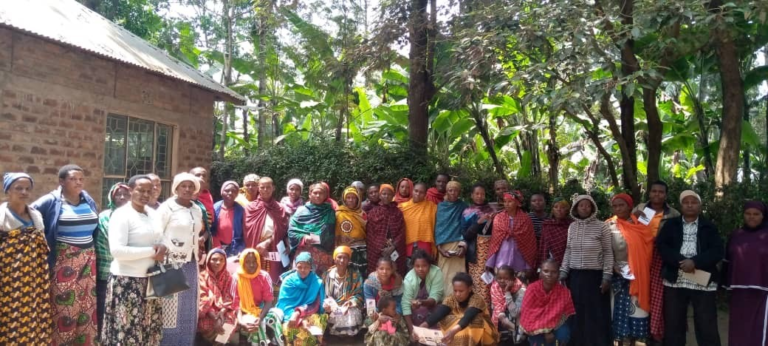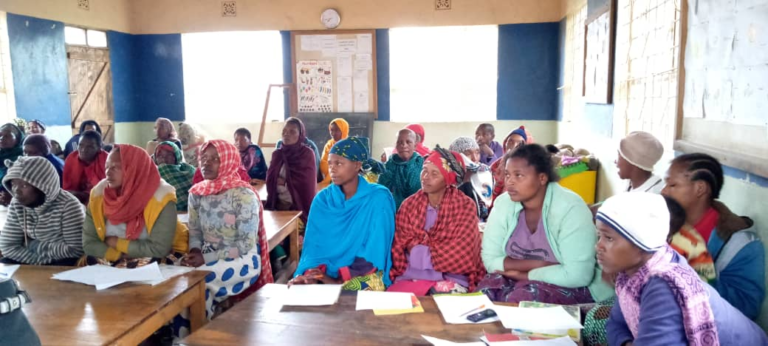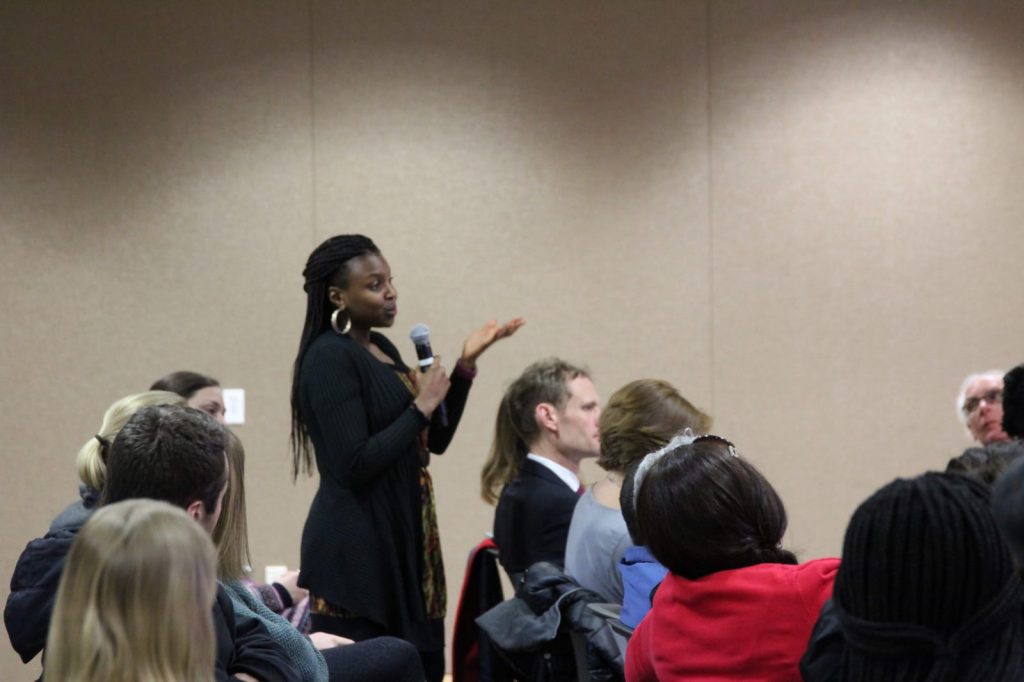In Arusha, Tanzania, Maasai Women See Opportunity Amid Crisis

Rebecca Ellison, Research Fellow, Youth, Gender & Vulnerability Policy Lab
rwellison@africacfsp.org
Collective Action to Meet Community Needs
On the outskirts of Arusha, Tanzania, and on the slopes of Mount Meru is the village of Olmringiringa, with a population of 2,900 residents, most of whom rely on small scale subsistence farming and livestock rearing for income. In this village, a group of one hundred and fifty Maasai women meet on a weekly basis to share their aspirations, goals, and projects. They learn about profit sharing through community banking enterprises, aspects of Maasai culture including the reading of texts in the Maa language, home economics, hygiene, and supporting the educational needs of children and youth. These gatherings are facilitated by a senior member of the Maasai community, Letipis Ole Supeet, who works on a voluntary basis as the Executive Director of Taretok Child Prosperity and the Director of Community-Based Programs in the Olmringiringa village. These gatherings embody a framework of nonformal education, where learning is collaborative and systemic, yet flexible in its application.
Such cooperation is deeply embedded in the cultural norms among the Maasai of northern Tanzania, where success of an important endeavor begins with a meeting of all adult men and women and concludes with a consensus and a plan of action. Such actions make up the foundations of the community and do much to improve the quality of life of its members. As a result, community members tend to encounter challenges with a sense of assurance that the right strategy and resources will be found to address them. For example, intense and prolonged rains as a result of climate change regularly cause deadly flash flooding in low lying areas and destabilize the hillsides of Mount Meru. In response, the residents of Olmringiringa have shown tremendous resilience in helping rebuild homes, replant crops, and collectively mourn after devastating landslides.
Confronting Challenges Amidst COVID-19
Community schools are typically constructed, staffed, maintained, and managed by community members, rather than by governmental, private, or religious entities. Nonetheless, due to the COVID-19 pandemic, the Tanzanian government mandated school closures in March 2020.
The closing of the Olmringiringa community pre-school disrupted education for fifty children at a time when they were learning critical preliteracy skills. Parents and caregivers faced challenges similar to parents across the world in helping their children continue their education, albeit without the benefit of online-based curriculums or learning platforms so ubiquitous in other parts of the world. Additionally, the lockdown burdened households with children of different grade levels and potentially contributed to the erosion of accumulated learning outcomes of students.
In response to the lockdown, Maasai women quickly mobilized to support the learning needs of children in the village by formulating new modes of collaboration between parents and teachers, a task made easier through the existence of an already collaborative community.
Under the leadership of Head Teacher Letipis, the women mobilized to assist by conducting home visits with families, and to share school curricula and learning tools with parents to use at home with their children. Through this network, teachers assigned homework and consulted with parents on a weekly basis to review progress. The lesson plans included spatial awareness, basic math, letter recognition, phonetics, and object associations. Themes were drawn from nature and local wildlife. Based on the completed homework assignments and weekly consultations, teachers observed significant improvements in the “serve and return” interactions between parents and children. They also observed improved numeracy skills and an expanded spatial awareness of their home environments.

Teachers Expand Advocacy in Early Childhood Education
Parents across Tanzania are generally unaware of their role in contributing towards the education of their children in pre-school. A 2019 study by Tanzanian nonprofit HakiElimu, entitled Assessing the Learning and Teaching Environment for Pre-Primary Education in Tanzania, found gaps in the status of parent-teacher collaboration in areas that enhance the quality of pre-primary education. While ninety-seven percent of parents in Arusha reported collaboration in the areas’ school meetings, contribution of funds for improving learning, and assisting children learning while at home, only sixty percent of teachers had the same perception. Similarly, fifty percent of parents across Tanzania are generally unaware that early childhood education prepares them for literacy and numeracy skills.
Without a doubt, the learning community developed in response to the pandemic in Olmringiringa. The development improved parents’ awareness of their role in achieving learning outcomes for their children. According to Letipis, this level of parental engagement during unprecedented school closures could not have been possible without the quick response of the women who mobilized to make home visits and develop a consultative approach to meet the educational needs of the children.
A Model Community
Schools reopened on June 29th and the children were eager to return to their classrooms. The Olmringiringa women’s learning community has returned to their regular Tuesday meetings with a renewed appreciation for the educational needs of their youngest members. The women received a visit from accomplished and prominent Maasai female educator who is the Principal at Datasky College in Arusha, Managing Director of Masue Tours, and Coordinator for women’s programming at Taretok Child Prosperity, Einoth Francis Mollel. Ms Mollel encouraged them to continue supporting education by ensuring their children strive for academic excellence throughout their secondary and tertiary education. The women of Olmringiringa are positive role models who are committed to lifelong learning, self-improvement, and finding ways to support community members’ needs.

Based on your interests, you may also wish to read:
- Kenya Should Adopt Comprehensive Sexuality Education to Address the Vulnerability of Girls to Early Pregnancies
- A Path Towards Women’s Socio-Economic Empowerment in Chad
- COVID-19, Youth and Tech: The Chance to Build a Resilient Nigerian Economy?
- The Socio-economic and Cultural Response to COVID -19 By Women in The Gambia


